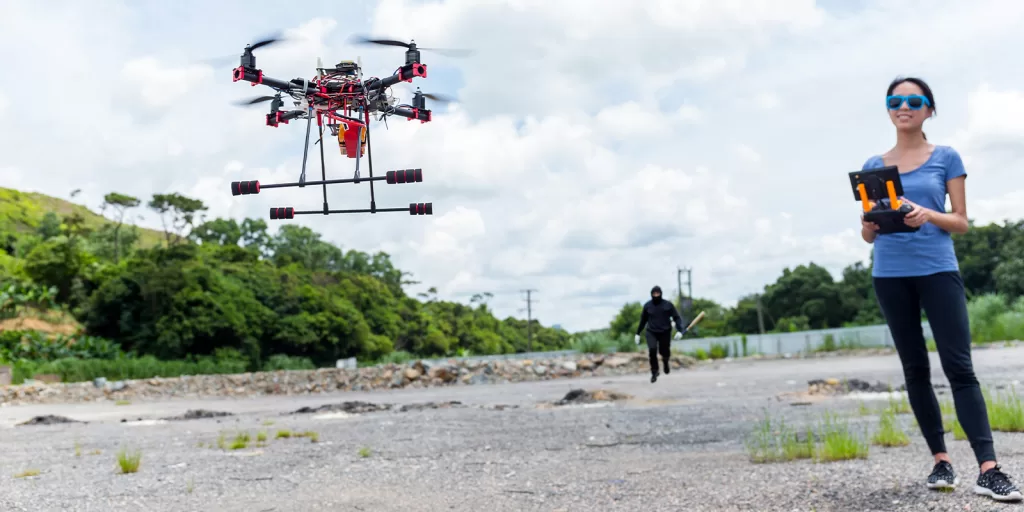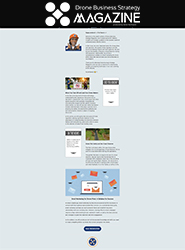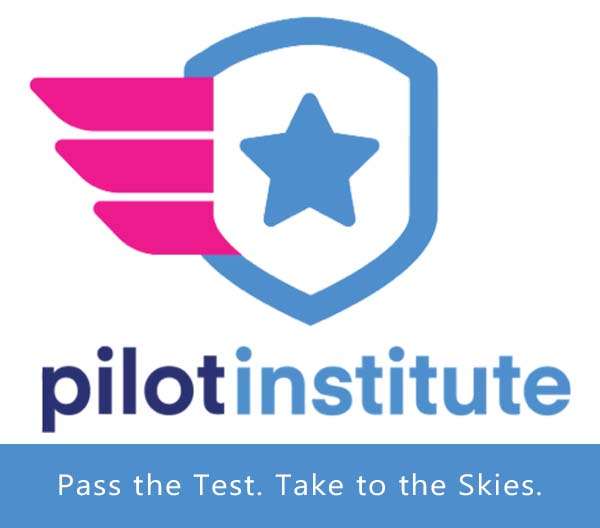
Introduction
As drone pilots, we have experienced the exhilaration of exploring the skies, capturing stunning footage, and embracing the potential of unmanned aerial vehicles (UAVs). However, an impending cloud of unease looms on the horizon as the Federal Aviation Administration’s (FAA) Remote ID law is set to take full effect on September 23 of this year. This new regulation has left many drone enthusiasts feeling uncomfortable and uncertain about its implications.
In this article, we will thoroughly examine the key concerns surrounding the Remote ID law, its potential impact on our flying experiences, and explore the proposed solution of requiring drone app tracker distributors to mandate user registration for a free account. We will also address the significance of continuous improvement in regulations and the ethical responsibilities of drone operators in embracing compliance. By understanding the challenges, exploring solutions, and acknowledging our ethical responsibilities, we can better navigate this new era of drone piloting responsibly and safely.
Join us as we delve into the intricacies of the Remote ID law, its implications for the drone community, and how we can collectively shape a responsible and secure future for drone piloting. As the September deadline approaches, let us stand united in advocating for a regulatory framework that balances safety, privacy, and the freedom to explore the skies with enthusiasm and responsibility.
Section 1: Unraveling the Remote ID Law
The FAA’s Remote ID law aims to enhance safety and security in the ever-growing world of drones. By requiring drones to broadcast identification information while in flight, authorities can readily identify and track UAVs in real-time. While this regulation may have its merits in enhancing airspace safety and enabling law enforcement to address unlawful activities, it raises concerns among the drone community.
Section 2: The Concerns of Drone Pilots
Drone pilots have expressed several worries regarding the implementation of the Remote ID law. One of the primary concerns is the compromise of personal privacy. As the law mandates broadcasting identification information, it leaves pilots vulnerable to being tracked by the public. For hobbyist pilots who value their privacy and the freedom to explore without undue scrutiny, this is a significant apprehension.
Additionally, some fear that the data transmitted through Remote ID could be intercepted or misused, leading to potential cybersecurity risks. The thought of their flight paths and locations falling into the wrong hands raises legitimate worries among responsible pilots.
Furthermore, the cost and feasibility of implementing Remote ID technology on existing drones present a challenge for many enthusiasts. Not all drones in the market are equipped with the necessary technology to comply with the law, forcing pilots to either upgrade their equipment or face restrictions in their flying activities.
Section 3: The Proposed Solution – Mandatory User Registration for Drone App Trackers
In response to the concerns raised by drone pilots, a potential solution has emerged: requiring users of drone app trackers to register for a free account. By partnering with drone app tracker distributors, this registration process would provide a secure and privacy-conscious means for pilots to comply with the Remote ID law.
Under this system, pilots would have greater control over the data transmitted during their flights. Rather than broadcasting identification information for public access, pilots’ details would only be accessible to authorized law enforcement officials when necessary, safeguarding their privacy.
Moreover, this approach would offer an additional layer of cybersecurity protection. With the user registration system, data transmission could be encrypted, reducing the risk of interception and misuse by malicious actors.
Section 4: The Benefits of User Registration
Enforcing user registration before activating the drone app tracker provides several benefits. Firstly, it facilitates a more efficient and accurate identification process for law enforcement in the event of unlawful activities. By having access to a pool of registered users, authorities can swiftly pinpoint the responsible party in case of any incidents, increasing the chances of bringing perpetrators to justice.
Secondly, this approach serves as a deterrent to potential wrongdoers. Knowing that their actions can be traced back to them, criminals may think twice before engaging in unlawful activities, thereby contributing to a safer and more responsible drone community.
Section 5: Acknowledging Limitations
While requiring user registration for drone app trackers offers promising solutions to some of the concerns surrounding Remote ID, it is essential to acknowledge that no system is entirely foolproof. Determined individuals may still find ways to evade detection, and technical challenges may arise during implementation. However, it presents a step towards striking a balance between safety, security, and the preservation of our privacy and freedom as drone pilots.
Section 6: Continuous Improvement and Future Modifications
It is crucial for drone pilots to recognize that regulations, like the Remote ID law, are not set in stone and can be subject to future modifications. While the current implementation may raise concerns, it is essential to understand that ongoing dialogue between regulators, drone pilots, and other stakeholders can lead to improvements that benefit everyone involved.
As the drone industry evolves and technology advances, regulators may revisit the Remote ID law to address identified issues and incorporate feedback from the drone community. This iterative approach allows for refining the regulations to strike a better balance between safety, privacy, and the seamless integration of drones into the airspace.
Drone pilots should actively participate in discussions, providing valuable insights and experiences that can inform policymakers about the practical implications of the Remote ID law. By engaging constructively, we can work towards a regulatory framework that enhances safety and security while respecting the rights and concerns of all stakeholders involved.
Section 7: Navigating Ethical Responsibilities – Embracing Compliance
Drone operators face ethical responsibilities when it comes to adhering to regulations such as the FAA’s Remote ID law. As the deadline for compliance approaches, some operators may contemplate circumventing the law by refusing to fly their drones without requisite Remote ID installed and active on their aircraft. However, such actions can have significant consequences and raise broader concerns for the drone community.
While it is natural to have reservations about new regulations, simply avoiding compliance is not a viable solution. Choosing to fly without Remote ID undermines the collective efforts to enhance safety and security in the drone airspace. It places not only the individual operator at risk but also risks damaging the reputation of the entire drone community.
Responsible drone pilots recognize the importance of being proactive in adhering to the law while also advocating for constructive changes and improvements. Engaging in dialogue with regulatory bodies and participating in feedback processes can help shape regulations that strike a balance between safety, privacy, and the joys of drone piloting.
By embracing compliance and respecting the principles behind the Remote ID law, drone operators can play a vital role in fostering a culture of responsibility within the community. This approach helps build trust with regulatory authorities and demonstrates a commitment to safe and responsible drone operations.
Conclusion: The Takeaway
As the drone industry prepares for the full implementation of the FAA’s Remote ID law, it is essential to consider the ethical responsibilities that come with being a drone operator. Choosing to comply with the regulations and actively advocating for positive changes is a powerful way to contribute to the growth and sustainability of the drone community.
While concerns and unease are natural during regulatory changes, circumventing the law by refusing to equip drones with required Remote ID technology is not a responsible course of action. Instead, responsible pilots embrace compliance and work collaboratively with regulatory bodies to ensure that the rules are well-balanced and conducive to safe and enjoyable drone piloting experiences.
As we navigate the skies under the new Remote ID framework, let us strive for a community that upholds the highest standards of responsibility, safety, and respect for the evolving regulatory landscape. Together, we can create an environment where drone enthusiasts can flourish while safeguarding the interests of all stakeholders involved.
Be smart, safe, and forever fly!
If you have any questions, let us know! If you’d like to hire us, you can get more information here.
Written by: Tony Marino, MBA – FAA Certified Part 107 Commercial Drone Pilot and Chief Business Strategist at Aerial Northwest
Resources
Disclaimer: The information provided in this blog post is for general informational purposes only and should not be construed as legal advice.

DRONE BUSINESS STRATEGY MAGAZINE
A free digital publication made exclusively for all small business drone pilots to them help start-up, become profitable while sustaining a competitive advantage within the drone service industry sector they opt to serve.
“If you love to fly, we’d love to have you come aboard!”
We share your information with no one. Our Privacy Policy.









Leave a Reply
Your email is always safe with us.